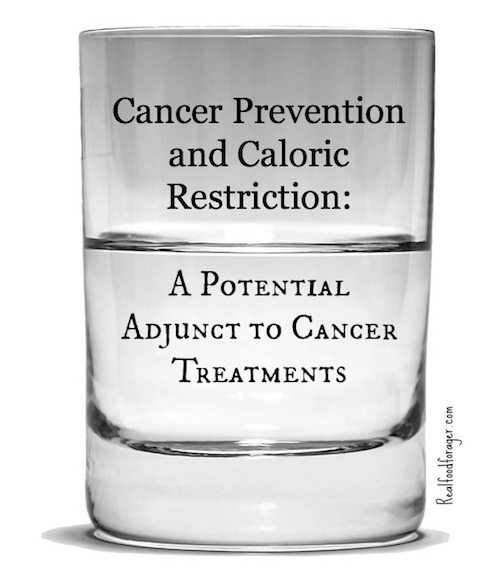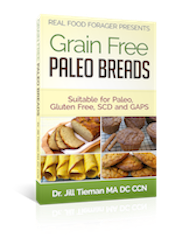
We have heard that calorie restriction is a useful tool in cancer therapy. Here is more proof that this adjunctive treatment should be vigorously investigated for use alongside other cancer therapies. Dr. Longo of the University of Southern California (USC) Norris Cancer Center and USC Alzheimer’s Disease Research Center, has been studying calorie restriction and its relationship with life extension and cancer cell death.
Fasting Causes Death of Cancer Cells
According to Dr. Longo in a interview in Natural Medicine Journal, fasting protects healthy cells because there is less stress on them. In contrast, fasting is bad for cancer cells because they starve due to low glucose (cancer feeds sugar), low growth factors and high ketone bodies which weakens the cancer cells.
He goes on to say that the mutations cause cancer cells to become better at surviving under normal conditions, but worse at surviving the stress caused by fasting. This indicates that fasting can be a potential weapon against cancer.
What About Weigh Loss During Cancer?
Advanced cancer patients develop cachexia and malnutrition. Fasting would not be a benefit with these patients. But with those cancer patients that are not experiencing cachexia, fasting may be a boost to their treatment protocol.
According to Longo, severe caloric restriction is not appropriate, but a diet that can maintain a BMI (body mass index) of 21 – 23 and low waist circumference is ideal. Brief periods of fasting are recommended – two to three days with water.
It has been demonstrated that short term fasting increases the cytotoxic effects of chemotherapies on mammalian cells in vitro. Of interest to clinicians and the question asked by Tina Kaczor, ND, is how long of a fast would be necessary to achieve possible sensitization of cancer cells to chemotherapies? Dr. Longo’s answer,
In both mice and patients, the great majority who fasted were able to regain their weight after returning to the normal diet. For the 2–3 days of fasting (water only) before chemo and 24-hour fast (water only) after chemo, the risk is minimal. However, patients with diabetes or metabolic disorders, or those who have lost more than 10% of their weight, should be carefully assessed before deciding whether fasting is appropriate for them.
Clearly this is a potential adjunctive therapy that can be used alongside other cancer treatments, when appropriate.
In 2010 Dr. Longo pubished an article in Trends Pharmacological Science, entitled, Calorie restriction and cancer prevention: metabolic and molecular mechanisms. In this article he discusses the link between nutritional interventions and cancer prevention. He targets the mechanisms that may be responsible with the goal to develop chemoprevention agents.
In his conclusions Dr. Longo writes,
Cancer is not a disease limited to a number of proliferating mutated cells, but a complex process that also involves interactions with the neighboring not-mutated mesenchymal and inflammatory cells that are also affected by aging and/or cancer risk factors (8, 9). CR (calorie restriction) (and other interventions) by reducing the activity of pro-aging pathways, reducing growth and inflammation in the pre-cancerous and normal neighbor cells, and increasing apoptosis in damaged cells may reduce oncogene mutations frequency but also modulate the growth and invasiveness potentials of the mutated cancerous cells. Hence, understanding the role of CR and of other dietary manipulations in cancer, and identifying the metabolic and molecular mechanisms responsible for the CR-dependent cancer preventive effect has the potential to lead to drugs and therapies for broad-spectrum prevention and treatment of cancer.
Caloric Restriction as Cancer Treatment
According to Stephen Freedland, MD, from Duke,
In the entire field of cancer research, there have only been a handful of studies of calorie restriction as a cancer treatment.
In the past 10 years there have been increasing interest in the metabolism of cancer cells — and how that can impact dietary interventions.
According to Rainer Klement, MD, a radiation oncologist at the University Hospital of Würzburg in Germany,
The time is definitely ripe to test the various ways of altering cancer patients’ metabolism — be it through physical exercise, ketogenic diets, fasting, or calorie restriction. The combination of these lifestyle interventions with the standards of care seems very promising to me.
Dr. Klement has been studying the role of carbohydrate restriction in the treatment and prevention of cancer.
Sugar Feeds Cancer
In 2011 Dr. Klement and Dr. Kammerer published a comprehensive review of the literature involving dietary carbohydrates and their direct and indirect effect on cancer cells. The study was published in the journal, Nutrition and Metabolism.
They hypothesized that by reducing the amount of dietary carbohydates, one could suppress or delay the emergence of cancer and/or the proliferation of tumor cells already present could be slowed.
The fact is, sugar feeds cancer –many alternative practitioners and nutritionists have known this for years. Dr. Robert Lustig has written and lectured about this as well. Check out his Youtube video that over 3 million people have watched. Carbohydrates cause cancer cells to multiply and grow. The hypothesis that limiting carbohydrates could suppress or slow cancer growth is supported by a lot of laboratory science.
According to Dr. Klement,
…cancer cells thrive on glucose and starve on fats and ketones, which are food-derived energy units that are plentiful in low-carbohydrate diets.
According to Dr. Freedland (colleague of Dr.Klement),
The commonplace advice to avoid dietary fat is not a good recommendation to give cancer patients. They should eat a lot of fat and avoid sugar. (My emphasis)
Someone is finally talking sense!
It has been estimated that approximately 44% of American men and 37% of American women will develop cancer during their lifetime. Most of the variations in cancer risk across populations and among individuals is due to lifestyle and environmental factors, with genetics being a minor factor in risk.
What would you do if you or a loved one had a diagnosis of cancer? Leave a comment and let me know!
Find out how to become more proactive in cancer prevention.
Shared at: Real Food Wednesday, Allergy Free Wednesday
Photo Credit
The owner of this website is a participant in the Amazon Services LLC Associates Program, an affiliate advertising program designed to provide a means for sites to earn advertising fees by advertising and linking to Amazon properties including, but not limited to, amazon.com, endless.com, myhabit.com, smallparts.com, or amazonwireless.com. Disclaimer
Tropical Traditions Gold Label Virgin Coconut Oil

Tropical Traditions Gold Label Coconut Oil is a product I use every day.










{ 0 comments… add one now }